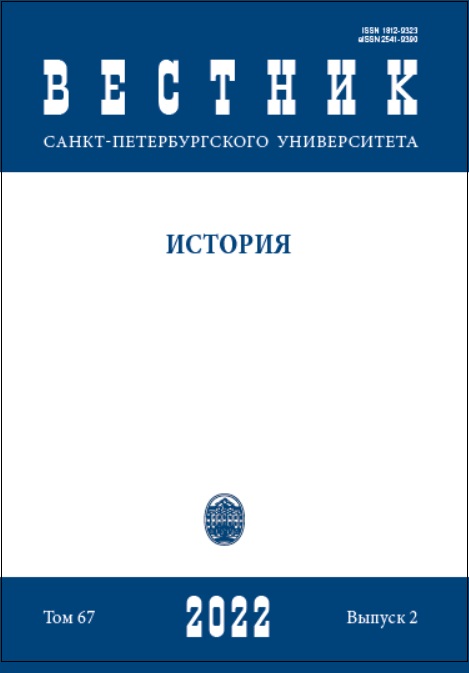The Moscow Embassy of George Kennan and American Diplomacy in the Cold War
DOI:
https://doi.org/10.21638/11701/spbu02.2022.212Аннотация
Статья посвящена изучению деятельности американского посольства в Москве под руководством Джорджа Ф. Кеннана в мае – сентябре 1952 г. в контексте дипломатической истории периода холодной войны. На основе анализа документов Архива внешней политики Российской Федерации раскрываются перипетии советско-американского переговорного процесса по таким важным международным проблемам, как мирное урегулирование Корейской войны, решение германского вопроса, заключение конвенции о сохранении морских котиков в бассейне Тихого океана и многим другим. Существенное внимание уделяется выявлению роли американского посольства в СССР и лично посла Кеннана в обсуждении этих вопросов и характеру взаимодействия сотрудников посольства США с советскими властями. Изученные архивные материалы позволяют сделать вывод о том, что в условиях идеологической и военно-политической конфронтации времен холодной войны американские дипломаты, находящиеся в Москве, были лишь посредниками в передаче информации, мало влиявшими на характер развития советско-американских отношений. В статье также рассматриваются причины и обстоятельства признания американского посла персоной нон-грата в Советском Союзе. Для Кеннана это событие стало профессиональным поражением, заставившим покинуть дипломатическую службу и сосредоточиться на научной деятельности в Принстонском институте перспективных исследований. Опыт дипломатической деятельности в Москве существенно повлиял на восприятие Кеннаном коммунизма и советской общественной системы. Инертность, забюрократизированность, идеологический догматизм, чрезмерная централизация власти – ключевые признаки советской политической системы, отмеченные американским дипломатом. Однако и американская политика в отношении Советского Союза в послевоенное время трактовалась Кеннаном как крайне прямолинейная, бескомпромиссная, слабо подверженная стратегическому планированию.
Ключевые слова:
холодная война, американская дипломатия, Джордж Фрост Кеннан, Корейская война, нота Сталина, НАТО, конвенция о сохранении котиков северной части Тихого океана
Скачивания
Библиографические ссылки
References
Загрузки
Опубликован
Как цитировать
Выпуск
Раздел
Лицензия
Статьи журнала «Вестник Санкт-Петербургского университета. История» находятся в открытом доступе и распространяются в соответствии с условиями Лицензионного Договора с Санкт-Петербургским государственным университетом, который бесплатно предоставляет авторам неограниченное распространение и самостоятельное архивирование.





